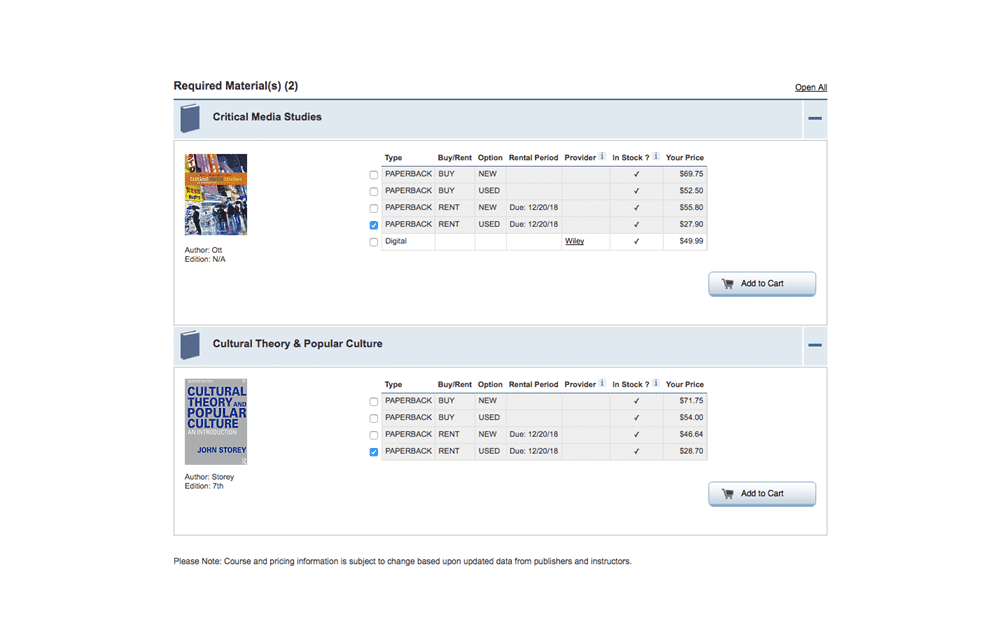As parents say their final goodbyes to their kids, a new chapter begins at Montclair State University. There is a fresh new wave of students that are either eager or anxious for the school year to begin. Syllabus week is like no other week for college students. The excitement of living on one’s own and meeting new people is only slightly overcast by the lingering problem that is textbooks.
Confusion over textbooks accompanies the start of the semester. Typically before the first day of classes, professors post their syllabus online in order to update students on rules, give them an overview of the course and provide textbook information. However, some professors do not update their syllabus, which leads to confusion on the first day of class. This renders the posting of the syllabus completely useless if the information is not up to date or accurate. The uncertainty leads to the famous debate of whether to buy textbooks before the first day or not.
Many students live on a fixed budget. Not knowing what books to purchase ahead of time could play a factor in deciding whether or not they can afford a drink and a protein bar at the mini-mart in the Student Center. Students put aside a certain amount of money in order to buy the textbooks needed for classes. When a student is told they do not need a textbook when it was already listed in the syllabus as necessary, it becomes a hassle for the student to return the book. Some websites do not offer to pay the return fee or will not even accept the book back.
The prices for certain textbooks can range from a mere $15 to buying an interactive code that costs a whooping $200. Some sellers do not consider how much money is being spent on college itself before setting their prices. This can be seen in our very own university bookstore. When looking at textbook prices, there is a noticeable difference between renting and purchasing depending on the retailer. Websites like Amazon, Chegg and the University Bookstore will quote different prices for the same books. Our very own bookstore has higher prices for books that can be found for ten dollars cheaper on different websites.
Students from different colleges have something to say about the high prices for textbooks:
college scams:
-textbook prices
-paid parking/parking tickets
-printing costs
-no healthcare coverage
-forcing students to pay upfront for conferences + travel and then reimbursing them MONTHS later— Sarah (@SarahCalise) August 30, 2018
https://twitter.com/ethan_fogg/status/1032428673305985024
https://twitter.com/crystaaal_b/status/1034978481287954434
Though many syllabi offer different textbook purchasing options, there are always alternatives to paying full price. One way is to rent your textbooks, but do not wait until the last minute or else you will be out of luck. Additionally, previous students who have taken a class will most likely post statuses on their social media about selling textbooks, but be careful who you are purchasing from. There should always be a neutral setting when a seller and buyer are exchanging items. Another way to save money is to go to Harry A. Sprague Library, which is located right next to Cafe Diem, to see if the library carries the textbook you need. You can then put it on hold for the semester. A last ditch effort could be to just share a textbook with someone in your class.
For students on a budget, it’s easy to rationalize hesitating to buy their textbooks because of the price tag. When there is uncertainty around whether or not a syllabus has been updated, students end up in a mad dash to get the books they need for assignments due right after syllabus week. They are forced to look left and right to afford all of the supplies needed for school, especially textbooks. With the prices going up for tuition itself, how do students scrap up enough pennies to afford a textbook?





